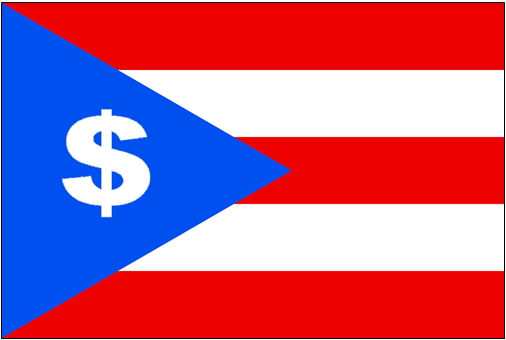Puerto Rico is bankrupt.
It has no money to meet its obligations, and in early April, Governor Alejandro Garcia Padilla signed legislation that would place a moratorium on payments on Puerto Rico’s unsustainable $72 billion debt.
And unless that debt is restructured in an orderly manner — and soon — it is highly conceivable that U.S. taxpayers will wind up footing the bill and bailing out bondholders who bet poorly on Puerto Rican debt.
That is why Americans for Limited Government urging Congress to require Puerto Rico to explicitly restructure its $72 billion debt if there are no funds to pay debts.
Legislation now under consideration in the House Natural Resources Committee sponsored by U.S. Rep. Sean Duffy (R-Wis.) could begin that process by “imposing a tested mechanism for getting the territory’s finances under control and by creating a controlled environment for restructuring Puerto Rico’s unsustainable $72 billion of debt that will keep taxpayers off the hook,” said Americans for Limited Government President Rick Manning in a statement issued on April 15.
Manning compared the financial control board created by the House legislation to a similar board that oversaw Washington, D.C. finances when the nation’s capital was in financial dire straits in the 1990s.
“There is a successful history of Congress imposing financial controls in the past with the most recent example being the successful effort in the District of Columbia to pull the nation’s capital back from the brink of insolvency,” Manning said, adding, “Protecting taxpayers is job one of this legislation.”
The control board that would oversee Puerto Rico’s finances will be granted broad authority to restructure the territory’s debts, secure and unsecured. That is good, but it should be bolstered with explicit taxpayer protections so that restructuring will be mandatory when there are no other funds to pay debts.
Also, unsecured creditors — who took a risk with higher yields — must not be allowed to cut in line when it comes to getting repaid. Right now, the control board has broad discretion with how to discharge Puerto Rico’s debts.
While having the power to restructure is absolutely necessary, Congress has the opportunity to set forth the rules of the road to say in which order creditors will be paid. That will ensure that bondholders are treated equitably and consistently. The board should not have the power to pick winners.
It is true that some creditors may be more willing to take a haircut than others — and the board should have the ability to make those voluntary arrangements a part of negotiations with creditors — Congress needs to lay out what happens if and when no deal can be reached.
That certainty will give negotiators leverage while resolving Puerto Rico’s obligations, while also guaranteeing orderly resolution if no arrangement can be reached ahead of time.
Requiring mandatory restructuring in this way will also discourage states with big debts like Illinois and California from asking Congress to bail out its own municipal bond holders, chiefly by leaving default as a powerful disincentive from being fiscally irresponsible.
If creditors believe that they could lose their money, they have more leverage with governments and elected officials to ensure that they are capable stewards of tax dollars. This will keep municipal bond markets honest because the threat of failure will remain real.
The alternatives of implicit or explicit guarantees are a recipe for more profligacy and would put taxpayers at obvious risk.
In the European debt crisis, the battle was between bondholders who enabled socialist governments like Greece and taxpayers who were being asked to bail them out.
By providing for restructuring Puerto Rico’s debt up front, Congress is avoiding those pitfalls. The Duffy bill is a good start. Now it needs some explicit taxpayer protections to make that restructuring mandatory if there are no funds to pay debts, and ordering for who gets paid in what order if no agreements can be reached.
As Manning concluded, “If taxpayers are protected and creditors get a real haircut when there are no funds to pay the debts, then by definition it is not a bailout.”
Robert Romano is the senior editor of Americans for Limited Government.







